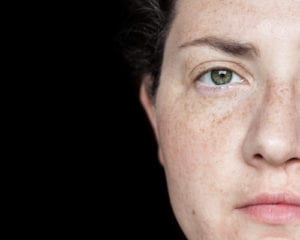There are a variety of methods used to treat depression, including cognitive behavioral therapy, interpersonal therapy, and psychodynamic therapy – medication in addition to one or more of these forms of therapy can also be beneficial. Science has shown that an alternate form of therapy involving magnets has been shown to protect individuals from the symptoms of depression. According to the Scientific American, transcranial magnetic stimulation (TMS) isn’t a new form of therapy, but it does prove a viable option for defense against this mental illness.
The U.S. News states that this is a form of brain stimulation therapy, which involves activating or inhibiting the brain directly with electricity. With TMS, a small electromagnetic coil is placed against a person’s head at a certain location, most often the left frontal cortex of the brain because that is shown to be less active in people with depression. There are two types of TMS: repetitive transcranial magnetic stimulation (rTMS) and transcranial direct-current stimulation (tDCS).
With rTMS, a wand is attached by cable to a wall outlet and the magnetic field travels through the hair, skin, and skull. Dr. Joan A. Camprodon, director of neuropsychiatry and neuromodulation at Harvard Medical School, told U.S. News in an interview, “The brain’s neurons act as a pickup coil and turn the field back into electricity, which forces the neurons to fire.” With tDCS, two wires with electrodes extend from the smartphone-sized device containing a 9-volt battery to the head. While both methods deliver electricity, each do it in a unique way.
Harvard Medical School states that TMS is for people who have tried standard treatment methods and they haven’t worked. They do not suggest TMS for people with mild depression or newly diagnosed moderate/severe depression. No anesthesia is needed for this form of treatment. In a study that involved 301 men and women who did not respond to up to 4 antidepressants, 1 in 7 participants who underwent TMS got relief from their depression by the 6th week, compared to 1 in 20 who underwent what looked like TMS but didn’t wasn’t.
With many different forms of treatment available, you must find what works best for you. If you haven’t sought out treatment yet, speak to someone today. By seeking help, you can determine what helps your depression the most and you can be on your way to a happier, healthier way of living.
Avalon Malibu is a world-renowned, California state-licensed mental health and substance abuse recovery treatment center. Our licensed, experienced health care team truly cares about your recovery and will work with you to develop tools to overcome your challenges and better manage your symptoms. Make the decision to seek help today, and call us at 888-958-7511 for a consultation.












